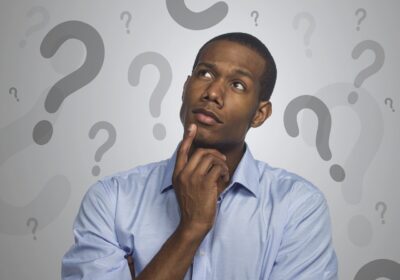 Why is Y a vowel? The answer is, all English words must have at least one vowel. For whatever the reason, sometimes letters that are also consonants, are used as vowels instead.
Why is Y a vowel? The answer is, all English words must have at least one vowel. For whatever the reason, sometimes letters that are also consonants, are used as vowels instead.
This article will examine the letter Y, how it’s used as a consonant as well as why and when it’s used as a vowel. Additionally, we will look at the different pronounciations of this versatile letter and how its pronunciations change depending on the letters around it and how it’s being used.
Y The Consonant–How To Use It As Such
This letter is the 25th of the 26 letters in the English alphbet.
When it’s used in the beginning of a word as a consonant, it is pronounced completely different than when it’s used at the end of a word, and often even completely different when used in the middle of a word. Sometimes, it’s pronounced two or more different ways in the same word.
Let’s look. Shall we?

When used at the beginning of a word, being used as a consonant, in words such as yes, you, year and yonder it’s pronounced similarly to the combination of the letters “eeah”.
When used at the end of a word as a consonant, it’s pronunciation depends on the letter or letters that preceed it. For example, in words such as greedy, speedy, query, and needy it makes the sound of a long E.
However, in words such as boy, enjoy, coy, and joy, that have the letter O before it makes the same sound as the combination of the letters OI. This is also the case if OY is in the middle of a word. For example: Enjoyment, employment, and destroyer.
Another pronunciation is when it is paired with the letter A (AY). It that case, whether at the beginning, middle, or end of a word, it is pronounced like the long sound of the letter A, For example: Day, jay, bay, maybe, yay (there are two pronunications of Y in the same word-yay), and ayjay.
The combination of the letter EY at the end of a word, is most commonly pronounced similar to AY-the long sound of A, although at the beginning of a word, for example in the word, eye, it sounds like the long sound of an I.
So, How Do We Use Y As A Vowel?

There are times it is used as a vowel because, I’m not sure if it’s because someone forgot to put a regular vowel in the word or if it’s by design. In any case, it usually makes the sound of either a long or short I and it’s most commonly used in the middle of a word, although there are times when it’s used at the beginning of a word, particularly in proper nouns.
The best clue I can provide is by the letter that follows the Y. If the letter that follows is a consonant, the Y is most likely a vowel. If the letter after it is a vowel, the Y is probably a consonant. Got it? Good. However, if there is no letter following the Y, it could be either a vowel or a consonant.
I understand if you’re confused.
Let’s look at some examples: In the surname Ybarra, the Y makes the sound of a long E. In the sure names Lynn and Lynch, the Y makes the sound of a short I but in words such as by, try, fly and buy, bicycle the Y makes the sound of a long I.
Whew!
Y Can Be Used To Turn Words From Nouns To Adjectives
How is that possible?
First of all, often times, it’s more of a short-cut or a joke, used for fun more than anything else. However, there are times when by simply adding a Y at the end of a noun, it legitamately becomes an adjective.
 Let’s look at some of the ways.
Let’s look at some of the ways.
The word sleep, is both a verb and a noun. When used as a noun, by adding Y at the end (sleepy), it becomes an adjective that describes someone’s state of being. A creep is a person who is not well liked. Creepy is a way to descibe someone who is strange or weird. A word is a noun. Add a Y to word and you have wordy, which means there are a lot of words, perhaps, unnecessary word
Sometimes though, as stated above, people add a Y to a word (noun) to make it an adjective that isn’t a real word. It’s a made up word. For example, perhaps a house has many shelves. Someone might say it is shelfy or shelvesy. Neither shelfy of shelvesy are not real words but most English-speaking people will probably know what is meant by the made-up word.
Another example: Suppose a woman wears to much make up. Someone could describe the woman as make upy. There’s no such word but the meaning is clear.
When Y Is Used To Explain Why
Ironically, to the best of my knowledge, there are no English words where the letter Y says its own name. Even when it’s used a vowel, it doesn’t say its own name.
However, in this day and age of social media and texting on cell phones, many people have twisted the language in a way that is completely made up by using abbreviations and single letters to make words. The two most common letters I can think of are the letters U, which is often used rather than “you”, which is what the U is intended to mean. The other letter is Y, which is used in place of the word why.
An example of a cryptic text message could be something to the effect of “U know Y” (you know why). There are many others.
As far as I know, it’s only time Y says its own name.
Conclusion
I hope my explanations help explain why Y is a vowel as well as a consonant and the variations of its pronunciation. Not only are there variations of the letter Y that are actually gramatically correct, there are made-up uses as well.
If there’s more to the story, perhaps you’ll tell me what I’ve left out.
Leave comments and questions below. I will respond promptly.
Watch a YouTube video that corresponds to this lesson
Study some words that begin with the letter Y


Your article on why ‘Y’ is considered both a vowel and a consonant is incredibly enlightening! I’ve always been puzzled by the dual nature of this letter, and your explanations have cleared up a lot of my confusion. I found the section on how ‘Y’ can change the grammatical nature of a word, like turning a noun into an adjective, particularly interesting. Do you think the English language will continue to evolve in such a way that more letters might take on dual roles? Also, what are your thoughts on the use of ‘Y’ in texting and social media? Does it dilute the language or is it just a natural evolution? Looking forward to your insights!
Thanks for your comments and questions dreamgirl93.
I’m not sure if the English language will continue to evolve in such a way that more letter might take on dual roles but I do know that, because there are so many exceptions in English, many other letters already take on dual roles. All the vowels have at least two roles. Other letters are either silent under certain conditions or are pronounced differently depending on the other letters around them.
As for using Y in texting and social media, I absolutely think it dilutes the language. Too many people want to oversimplify things and find shortcuts. I posit that texting and social media are languages unto themselves. They resemble English but they definitely deter from the language itself.
Feel free to leave questions and comments anytime. I will promptly respond.
KBob